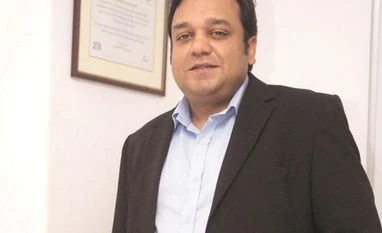With the Bombay High Court ruling, the proceedings at the National Company Law Tribunal (NCLT) — initiated by Invesco — will become infructuous, say lawyers. The NCLT was scheduled to hear Invesco’s petition on Wednesday. Invesco, however, has the option to move the Supreme Court to appeal against the HC order, said a lawyer.
Meanwhile, Zee cancelled its board meeting for considering the results for the July-September quarter, which was due on Wednesday over lack of quorum.
In its order, the HC said if a shareholder resolution was bound to cause a company to run aground on the “treacherous shoals of statutory compliance”, there was no conceivable or logical reason to allow such a resolution to be considered.
“Shareholder primacy or dominion does not extend to permitting shareholder-driven illegality. A perfectly legal resolution, if carried, may well result in the diminution of the firm’s profits or business. That is not a court’s concern. But the resolution must be legal. The interpretative question is, therefore, not over the word ‘valid’ at all but about the matters proposed to be considered at a requisitioned EGM. And the court is never foreclosed from considering this,” it said.
On Invesco’s submission that the Court cannot examine the legality, the single-judge Bench of G S Patel said it was an exercise in futility. “It advances a general theory that even what I can only describe as a ‘madcap resolution’ must always and in all circumstances be put before the general body,” said the court.
In its suit, Zee had appealed for a declaration that the requisition notice of September 11 by Invesco and its associate fund, OFI Global China, was illegal, invalid, bad in law and incapable of implementation. Zee also sought a declaration that its refusal to act on the requisition notice was valid. The company also sought an injunction against Invesco from acting in furtherance of the notice.
The court said the “Section 100” of the Companies Act, which deals with calling an EGM, lay at the heart of the controversy. The board of directors may call an EGM at any time. But shareholders who hold the qualifying equity (at least 10 per cent) of a company that has share capital may also requisition an EGM. The section says the board “shall” call an EGM within the specified time, 45 days from the date of receiving the requisition. The requisition must set out the matters to be considered at the EGM. The requisition must be signed by the requisitionists, and it must be sent to the registered office of the company. The board has 21 days to call the requisitioned EGM. If the board does not do so, the requisitionists may call the meeting themselves within three months of the date of the requisition.
The response from Invesco was that it was not for the board or the company to decide whether or not a particular proposed resolution — or all the proposed resolutions — were, according to the board or the company, illegal or valid. The general body of shareholders will decide in a general meeting whether or not to pass a particular proposed resolution, or any of the proposed resolutions.
The shareholders’ rights to call an EGM cannot be curtailed by the company or its board. If a resolution is “ineffective”, it will simply be “still-born” and will not be put into effect. But that does not mean that the EGM should be interdicted, the order said.
The principles of corporate governance and indoor management militate against the grant of any such injunction. Therefore, Invesco argued, the entire suit was premature and speculative: It assumes that the resolutions proposed at the requisitioned meeting will be passed by the necessary majority. The word ‘valid’ in Section 100 merely requires compliance with the qualifying criteria in that section itself — the minimum percentage shareholding, whether the requisition notice is signed, and whether it has been delivered to the company’s registered office. The word used in the section in relation to the Board’s obligations is ‘shall’, and there is no call to read it permissively as ‘may’. “On this last point, it seems to me that there is a fundamental disconnect in Invesco’s construct. The section itself contemplates a refusal or failure by the board to convene a requisitioned meeting; and the section then provides for what is to happen if the board does not act,” the order said.
Invesco also raised a point of the HC’s jurisdiction. On this, Zee argued that the dedicated tribunal, the NCLT, does not have the power or authority to decide any such questions. It simply cannot be, Zee argues, that no court or tribunal can decide the question — even if the end-result is going to be an illegality.
To read the full story, Subscribe Now at just Rs 249 a month
Already a subscriber? Log in
Subscribe To BS Premium
₹249
Renews automatically
₹1699₹1999
Opt for auto renewal and save Rs. 300 Renews automatically
₹1999
What you get on BS Premium?
-
Unlock 30+ premium stories daily hand-picked by our editors, across devices on browser and app.
-
Pick your 5 favourite companies, get a daily email with all news updates on them.
Full access to our intuitive epaper - clip, save, share articles from any device; newspaper archives from 2006.
Preferential invites to Business Standard events.
Curated newsletters on markets, personal finance, policy & politics, start-ups, technology, and more.
Need More Information - write to us at assist@bsmail.in
)